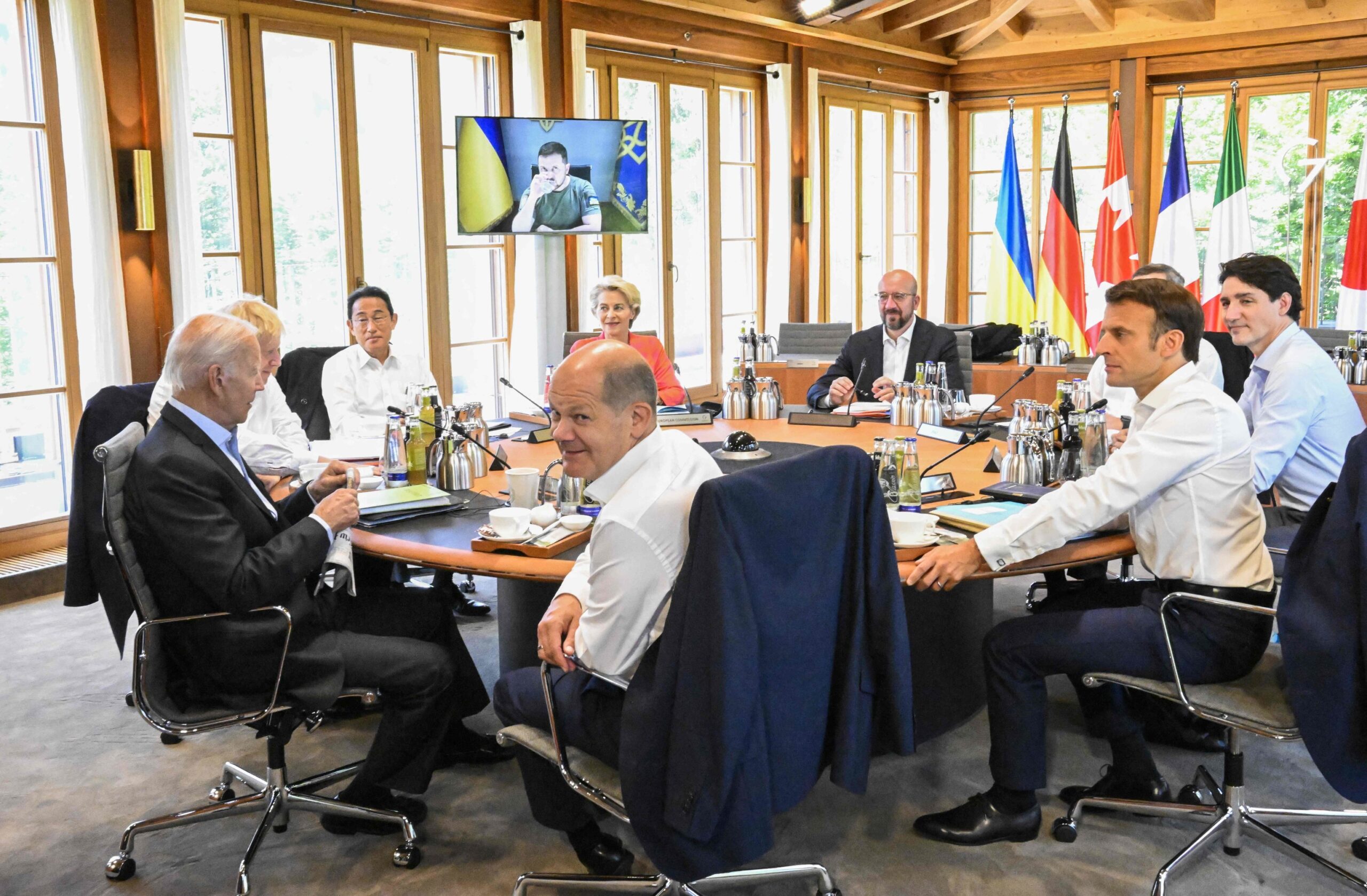The war in Ukraine was not on the agenda of the second day of the summit that brings together the leaders of the seven most powerful economies in the world in southern Germany, but the Ukrainian president, Volodimir Zelensky, sneaked into the meetings by videoconference to ask for more weapons and a strategy against the Russian blockade of its wheat exports.
“Negotiations to open a grain export route are going on day and night,” German Chancellor Olaf Scholz said. Given the impossibility of Ukraine now exporting by sea, the EU is investigating the opening of a “dry route” through Poland to Romania. US President Joe Biden has proposed building temporary barns on the Polish border, but Polish Agriculture Minister Henryk Kowalczyk warned that this requires resolving “many details, such as location, infrastructure, financing and ownership,” and They would need three to four months.
Last March, kyiv prohibited the export of cereals to ensure the needs of its population in times of war, according to the Reuters agency. When this ban occurred, the harvest had not yet taken place, but now there are -according to different estimates- 20 million tons in silos and it only seems feasible to export a maximum of two million tons per month due to the lack of routes. Ukraine will soon run out of deposits for the new harvest – necessarily smaller because of the war – which starts at the end of July.
Zelensky asked the participants at the Schloss Elmau summit to provide him with air defense systems and massive aid for the reconstruction of the country. The G-7 had anticipated the response by discussing new bans on the aggressor, this time on military production and supply chains. But we will have to wait for the final communique of the summit, tomorrow, Tuesday, to see what materializes.
On the prohibition of importing gold from Russia to further stifle its economic capacity, a proposal from the United Kingdom supported by the United States, Japan and Canada, there is not, on the contrary, unanimous. The European trio, Germany, Italy and France, are reluctant to take a position without first consulting EU partners. “We are discussing this issue, but this will also have to be discussed in the European Union circle,” Chancellor Scholz declared, so “this is not an issue that the G7 will finally decide on,” he said.
The ban on Russian gold would exclude it from the main markets, London and New York, but it would be practically impossible to execute since the gold reaches the market in melted form, so it would be impossible to detect its origin. The same happens with the oil at a good price that medium-sized economies acquire for resale, taking advantage of Western sanctions and Russia’s need for new clients.
Among the countries that have been singled out for carrying out this practice is India, which together with Argentina, Senegal, South Africa and Indonesia are joining the G-7 summit today at the invitation of Germany, the hosts. According to US sources, the G7 is finalizing an agreement to put a price limit on Russian oil exports to countries outside the US and the European Union (EU) that includes this group of countries. It will not be easy. India, South Africa and Senegal have not condemned the war in Ukraine and, like the vast majority of the so-called global south, have not joined first world sanctions.
“We must not fall into the trap set by (Russian President Vladimir) Putin of claiming that the world is divided into the global West (…) and everyone else,” while “democracies exist throughout the world and They have very similar perspectives. Scholz maintains.
One of the invited countries, Indonesia, will host the G-20 summit in November, to which both Putin and President Zelensky are invited. This circumstance has already given rise to all kinds of reactions. European Commission President Ursula von der Leyen, who is attending the summit, first stated that she was not going to Bali because it would be impossible for her to sit at a table with Putin. Hours later, she corrected that she would have to go because “it is also important to tell his face what we think of him,” she said. “And we have to consider very carefully whether we shut down the entire G20.” She didn’t defend that, she said. The G20 is “too important a body” for that, added von der Leyen.
The same is the opinion of Chancellor Scholz, who has left open the possibility of attending the G20 summit. This would be decided “shortly before departure”. However, “cooperation within the framework of the main industrialized and emerging countries is important and we must not torpedo the G20.”
President Biden believes that the G-20 should exclude Russia and that will possibly be the request he makes in his bilateral with his Indonesian counterpart, Joko Widodo,
Conforms to The Trust Project criteria
















